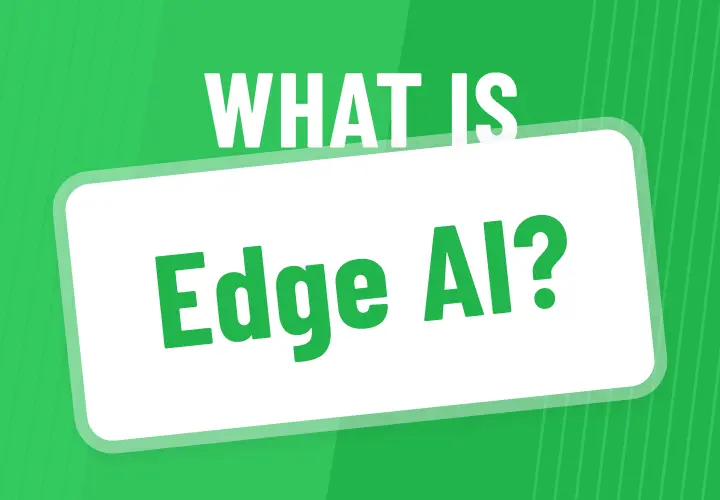AI in Recruiting
Table of contents
A report by Technavio, a leading market research company collaborating with over 100 Fortune 500 companies, showcases the growing importance of AI in recruitment, projecting a global year-over-year growth rate of 4.57% for the AI recruitment tools market from 2022 to 2026. These AI solutions are pivotal in streamlining and enhancing the hiring process by automating monotonous, high-volume operations and providing recruiters comprehensive insights into applicants' CVs. This not only improves employee quality but also reduces biases and allows HR teams to focus on strategic decision-making.
Key Functions of AI in Recruiting
Modern recruitment tools can automate and augment many aspects of the hiring process:
- Screening: AI recruiting solutions assist in screening candidates through various approaches, including AI-driven interviews and chatbots. These tools leverage AI to interpret candidate responses, providing sentiment analysis to enhance the vetting process.
- Video interviews: AI contributes to understanding key candidate characteristics through video interviews. Platforms analyze candidates' responses to questions, assessing how well they align with hiring criteria. Some technologies even determine traits such as extroversion and confidence.
- Talent sourcing: AI streamlines talent sourcing by interpreting job requirements and searching through databases (ATS/CRM or open sources) to generate a qualified list of potential applicants. Certain tools can also automate initial outreach through AI-generated text and email.
- Messaging and copywriting: AI significantly elevates the creation of recruitment marketing materials, such as cold emails, job advertisements, and offer letters. Tools like ChatGPT harness AI to refine and enhance text elements, including the rewriting of vacancy descriptions and requirements. By transforming technical or team lead-prepared job descriptions into more engaging and appealing content, AI tools can ensure that recruitment communications reach a broader pool of applicants, effectively expanding the job funnel and providing valuable support in recruitment communication.
- Scheduling: Many tools provide AI-driven scheduling features to enhance the candidate experience and alleviate the workload on the recruiting team. This ensures smooth coordination of interviews, preventing scheduling conflicts and enhancing overall efficiency.
- ATS re-engagement: AI not only helps in re-engaging with high-quality applicants in your Applicant Tracking System (ATS) who may not have been selected for previous roles, but it also significantly improves database quality. By analyzing open requisitions and thoroughly searching the database, AI can identify relevant past applicants for re-engagement, find duplicates, and even reassign candidates to different technological stacks if they have shifted their specialties. These functionalities enhance the overall effectiveness and efficiency of the recruitment process.
- Referrals: AI enhances the referral process by leveraging employee networks. The tool analyzes job requirements, evaluates employee networks, and suggests potential candidates for referral. This process occurs seamlessly without requiring direct recruiter intervention.
- Career site conversion: AI can increase conversion rates on your career site by incorporating chatbots that will answer questions about benefits, open roles, and more, leading to increased conversions into the ATS with quality candidates.
Essential Considerations for Choosing the Right Tool
While considering which set of the features mentioned above is a perfect match for your organization, pay attention to the following qualities to make sure you get the most out of your investment:
User interface and usability
When selecting a tool, remember that it must streamline your hiring processes, not complicate them. Choosing a tool with a clean user interface is essential to ensure seamless navigation and enhance overall productivity. Prioritize platforms with smooth learning curves, enabling the HR department to harness the tool's full potential quickly. A user-friendly system ensures your team can adapt efficiently, making the onboarding process swift and effective.
Candidate sourcing
Choose AI recruiting software equipped to search through diverse sources, including social media networks, publicly available databases, and other platforms. Access to a broad pool of top performers enhances your talent acquisition strategy and increases the likelihood of finding the best candidate.
Resume parsing
Manually sifting through numerous resumes consumes valuable time that your talent acquisition team could allocate to more critical and creative tasks. Select recruiting tools featuring natural language processors, enabling the extraction of relevant information from candidate resumes. This automation expedites the identification of potential new hires, enhancing the efficiency of the hiring process.
Software integrations
To maximize your reach and efficiency, you should opt for tools that seamlessly integrate with popular HR solutions, including CRMs, background checkers, applicant tracking systems, and human resources information systems. Combined with ERP integration, this ensures that you can leverage the AI recruitment tool to its fullest potential within your existing ecosystem.
Benefits of Using AI Recruiting Solutions
AI recruiting tools bring significant advantages to the recruitment process:
Increased efficiency and speed
AI tools streamline the hiring process by handling time-consuming tasks like screening applications and matching profiles to job requirements. This approach allows recruiters to focus on relationship-building with candidates and hiring managers. A quick analysis of resumes and scheduling of interviews further accelerates the overall recruitment timeline.
Improved candidate experience
AI tools in recruitment streamline the process, offering significant benefits to jobseekers. By quickly analyzing resumes, AI ensures that candidates are promptly matched with suitable job openings, reducing wait times. This automation of routine tasks allows recruiters to focus more on engaging with applicants, leading to a more personalized and positive experience. Jobseekers benefit from a faster, more efficient hiring process and enhanced interactions with potential employers, making their job search journey smoother and more rewarding.
Data-driven decision-making
AI platforms provide valuable data insights through natural language processing and machine learning. These tools automatically analyze resumes and interview responses, identifying patterns that shape the hiring process. Recruiters can leverage this data to monitor candidate progress, evaluate recruiting channels, and assess recruiter proficiency.
Reduced bias
AI minimizes hiring bias by automating resume screening and eliminating subjective opinions. Algorithms can be trained to recognize patterns, promoting diversity in the recruitment process and eliminating biases related to race, gender, and age.
Potential Issues and Challenges with AI Recruiting Tools
While AI recruiting tools offer advantages, companies must address potential challenges:
Cost of implementation and maintenance
Implementing and maintaining AI tools can be costly, requiring both financial investment and knowledge for operation. Subscription-based models can increase ownership costs, necessitating careful consideration of the budget.
Data privacy and security
AI tools handle sensitive candidate data, posing potential security risks. Companies must enforce robust data safety measures, including encryption and access restrictions, to protect confidential information.
Compliance and legal considerations
Adherence to data security and anti-discrimination laws is crucial. Companies must be aware of legal requirements that vary by location, as non-compliance can result in fines and penalties.
Job displacement
AI-driven automation may render certain roles redundant, impacting recruitment team dynamics. Companies must navigate personnel changes and consider the implications on employee performance and morale.
Ethical concerns
Ethical considerations include hidden biases in data, the opacity of AI decision-making, and potential impacts on the workforce. Transparent practices, bias-adjustment systems, and plans for retraining displaced workers can address these ethical concerns.
Updated on Mar 27, 2024





